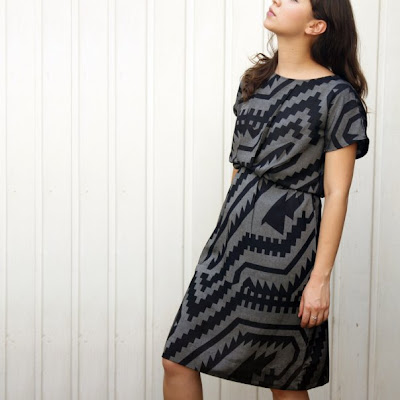PRET A PORTER PARIS® in Paris as a primary show, and special trade shows for different markets, with ATMOSPHERE’S for creators and designers, THE BOX for high-fantasy accessories, SO ETHIC for Ethical and eco-friendly fashion, THE TRAIN in New York and LIVING ROOM in Tokyo.
With its brand spreading out internationally, its attraction grows as a “fashion traffic point”.They are the two main focuses of this essential sector.
Ethical, fair trade and recycling, use of organic materials...
So Ethic is the window for fashion brands which specialise in sustainable approaches. All the future trends are there, in a committed, demanding, highly fashionable selection. It is now an essential stopover for buyers from specialist stores, multi-branded retailers, mixed concept stores and also department stores.
Choosing a media “show”
The “fashion event/salon" which offers direct contact with your clients, your future clients, trendsetters and journalists. The cost per contact is the least expensive of all the medias (radio/TV/posters/cinema/Internet) and allows for an immediate return on investment. It’s also a source for enrichment, knowledge and inspiration through meeting with others.
Putting your brand in the spotlight
By showing off its universe, its history, its people and designers to make you stand out, and attract buyers looking for something new.
Benefiting from the international recognition of the leading international fashion rendezvous
All the creative brands of today ( Isabel Marant Etoile, Paul&Joe, Tara Jarmon, Vanessa Bruno, Antik Batik, By Malene Birger, Blaak, Heimstone, Jerôme Dreyfuss, Save the Queen, Nathalie Garçon, .....) and references in the female market ( Derhy, Lilith, Didier Parakian, Garella, Fuego, Infinif, ...) launched themselves at PRET A PORTER PARIS®.
Obtaining financial assistance: the defi subsidy
Paris offers an international resonance and important media coverage. PRET A PORTER PARIS® welcomes more than 1100 journalists. You can keep them informed with your press kits made available to them in the press office, or present them with your leading silhouettes in the trends forum, or live during the catwalk shows.
You have the possibility of applying to DEFI for financial assistance with your participation at the PRET A PORTER PARIS, ATMOSPHERE and THE BOX salons. This subsidy is aimed primarily at exporting companies, creative startup companies and French fashion companies.
This assistance may amount to as much as 75% of eligible expenditure involved in the participation of the salons (space rental, decoration, communication, fashion shows, etc.)
To consult the criteria for eligibility and request financial assistance, download the form from HERE
This assistance may amount to as much as 75% of eligible expenditure involved in the participation of the salons (space rental, decoration, communication, fashion shows, etc.)
To consult the criteria for eligibility and request financial assistance, download the form from HERE
Source: PRET A PORTER WEBSITE















